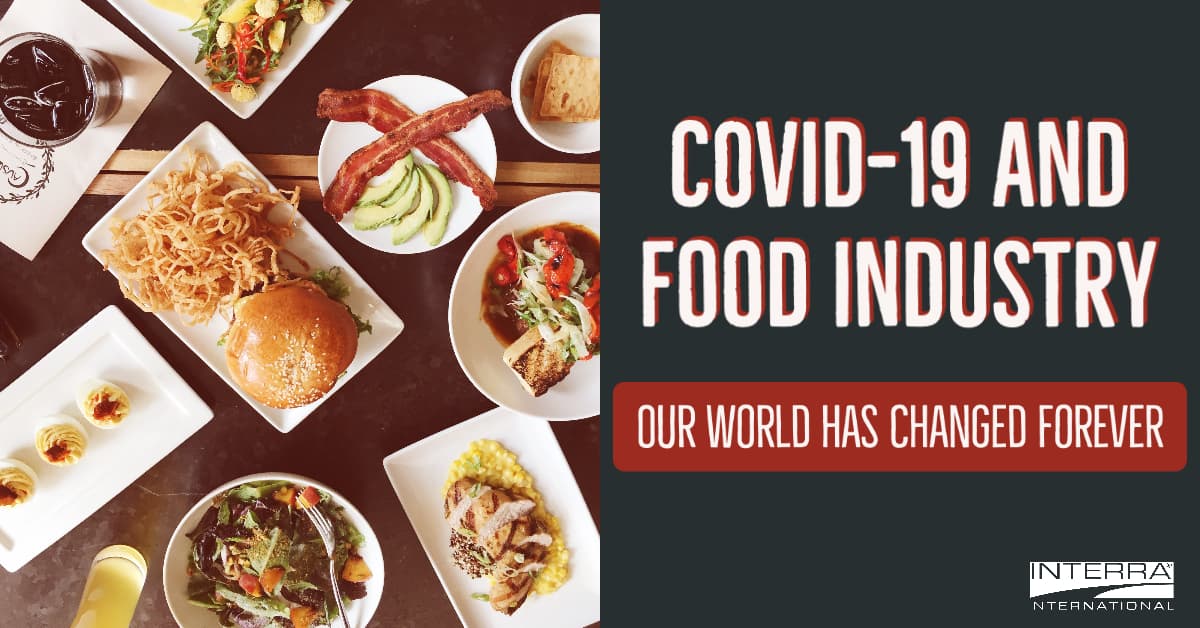COVID-19 and Food Industry

Our world has changed forever. Unemployment has increased, global travel has decreased. Casualties have increased, greenhouse emissions have declined. The coronavirus has driven all industries to unchartered territories, and global and domestic food supply chains have not been spared.
The pandemic has closed some food factories, impacted food transport, and rendered some workers jobless. The World Food Program predicts that up to 265 million people could be at the risk of famine by the end of 2020.
Shifting consumption patterns leading to food wastage
The risk of the pandemic is multi-pronged. Even where food supplies are available, producers and local retailers have limited buyers. Lockdowns and travel restrictions have caused perishable food items go to waste.
A massive volume of milk, eggs, and bread are going to waste as restaurants close, and people are restricted indoors. While there was panic buying at the start of the pandemic, demand was limited to long-lasting food items at the supermarket. The steep decline in orders from restaurants, schools, workplaces, and foreign markets has put business owners in a position where they must re-think, re-tool, and re-invent.
Disruptions in the supply of farm supplies pose a long-term risk.
Farmers have problems of their own regarding accessibility to agricultural needs. The pandemic has impeded accessibility to seeds, fertilizer, and agricultural labor. The coronavirus’s impact on global food security could thus be a problem that lives on long after the pandemic is overcome.
Loss of income and cautionary aversion behavior could dwindle food production as the pandemic progresses. As workers contract the illness and manufacturing plants close, that drives more shortage of fertilizers, seeds, and veterinary medicines.
Yet the food industry stands out as the most resilient.
The coronavirus crisis has highlighted areas for improvement in the global food systems. The Food and Agriculture Organization is looking at ways to transform global food systems to make them more resilient. We are seeing a glimpse of new and more resilient food systems as public authorities take steps to secure food production. Communities are coming together to offer safe alternatives, such as outdoor dining options and food delivery services. These programs are re-connecting people with food production, reducing panic buying, making nutritious food available, and supporting business along the way.
Despite all the disruptions triggered by COVID-19, the global food supply chains have fared comparatively well in the pandemic, even better than health systems. There have not been mass shortages except in areas that had pre-existing crises, including drought and conflict.
The food industry stands out as the most resilient and adept at risk management. Stronger collaboration and modernization of systems in the supply chains have led to quick and impactful contingencies that have reduced waste and minimized shortage.
At Interra International, we are concerned about the impact the pandemic has had on global economy, but we are optimistic about the change that will come to re-focus on resilience. The positive steps to keep the world fed is important to our collective survival and we look forward to an improved and efficient food industry in the future.
Interra is a specialty food distributor focusing on Proteins, and Commodities products. We can help you find the right source at the right price! – Call today for more information +1 770-612-8101, or fill out our contact us form!




